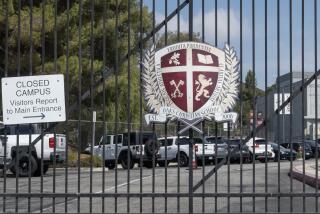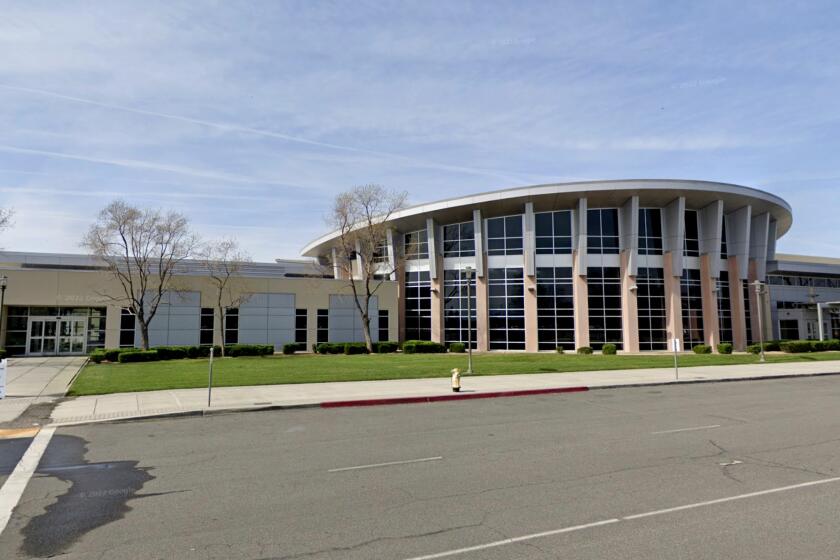Some Lesser Lessons From Diana’s Death
What if it had happened here instead of Paris?
What if Dodi Fayed and Princess Diana had been out on the town and were headed back to Fayed’s rented mansion in Beverly Hills? What if our own paparazzi had followed and Fayed’s chauffeur then stepped on the gas? If it had happened here, how would our perceptions and reactions have been altered?
To us, royalty is a foreign concept. Traffic accidents, on the other hand, are an egalitarian tradition we understand very well. In a given year, there are between 1,200 and 1,300 roadway fatalities in Los Angeles County. You can break a traffic law and get away with it. The laws of physics are another matter.
“Seems like unsafe speed to me,” my 80-year-old father grumbled last Sunday, a note of skepticism as TV news reports described how the tragedy was being blamed on the paparazzi. A couple of news cycles later, we would learn that chauffeur Henri Paul was drunk and that he had the Mercedes speeding at more than 80 mph in a 30-mph zone.
If it had happened here, interviews with law enforcement authorities and attorneys suggest, we would have been quicker to fault the chauffeur. As a matter of criminal law, the driver bears responsibility; if a chauffeur speeds at the behest of his boss, the chauffeur will get the ticket. But in civil court, litigators suggest, the Fayed business complex, as the chauffeur’s employer, would and should pay a heavy price.
*
In Paris, several paparazzi are under investigation for their possible role in the crash. The families of Fayed and Paul quickly filed civil suits against the photographers. Princess Diana’s family quietly filed suit on Tuesday. Earl Spencer, Diana’s brother, had already blamed the media for the tragedy.
Encino attorney Albert Coombes, who often represents people involved in vehicle accidents, suggests a much stronger case could be made against Paul’s employer. “If I were representing the children” of Princess Diana, Coombes said, “it seems to me they have a very good wrongful-death suit against the Fayed empire.”
Coombes offers a certain understanding of European sensibilities, having immigrated to the United States from Great Britain in the 1970s. Although now an American citizen, Coombes often interacts with the British Consulate as counsel to L.A.’s British Community Advisory Board.
The royal family, being royal, would in all likelihood dismiss any notions of seeking damages from the Fayeds, Coombes says, because it would be perceived as “vulgar.” It would be unseemly for one wealthy family to sue another, especially since both suffered so greatly.
But the lone survivor--Trevor Rees-Jones, Diana’s severely injured bodyguard--would also have a strong case against the Fayed family, Coombes said. The 29-year-old bodyguard, apparently the only person in the car who exercised the precaution of fastening his seat belt, may also have less of an impulse to blame the paparazzi rather than the intoxicated driver and the man in the back seat who ordered him to drive.
Rees-Jones, according to some reports, suffered such severe injuries that he may lose his tongue. “He may be disfigured for the rest of his life,” Coombes said. “Each time he looks in a mirror he may have to relive the horror. . . . He has an excellent case.”
It’s all a vulgar business, putting a price on arms, legs, tongues. But if you were Trevor Rees-Jones, what would you consider justice? Whom would you blame?
Here’s hoping that Rees-Jones recovers sufficiently to explain the atmosphere and mood inside the Mercedes that night. Perhaps the bidding for his story already has begun. How many millions would that book contract be worth?
That should be the hottest story around. Would Rees-Jones tell of a driver who seemed perfectly sober as he took the wheel, then transformed into a madman, speeding up as Dodi and Di implored him to slow down? Or would he say that Henri Paul was just following orders?
Were the passengers really so fearful that they fled? Or did they just think, like teenagers, that it would be fun, fun, fun to make a run for it?
“I’ve thought it might be a James Bond sort of thing,” Coombes said.
*
Interesting that we learned about the driver’s blood-alcohol level but not that of the other victims in this crash. If this had happened in Los Angeles, coroner’s spokesman Scott Carrier told me, toxicology tests would probably have been conducted on all three victims. That information, Carrier says, would be public record unless police thought it would somehow compromise their criminal investigation.
Perhaps this seems like another vulgar matter, a quest for gossip, but attorneys say the information could be vital in civil proceedings. At least it might explain the failure to detect Henri Paul’s inebriation.
Besides, it’s the kind of information that inquiring minds want to know, if only to better understand a tragedy that, had it happened to commoners out near Bakersfield, might merit a 3-inch brief in L.A. newspapers.
Some commentators have concluded that maybe there are no grand lessons to be drawn from this tragedy. But still, it might be worth reviewing a few obvious morals.
Don’t drink and drive. Never travel at unsafe speeds. Don’t forget to fasten your seat belt.
But we commoners already knew that, didn’t we?
*
Scott Harris’ column appears Tuesdays, Thursdays and Sundays. Readers may write to Harris at the Times Valley Edition, 20000 Prairie St., Chatsworth, CA 91311, or via e-mail at scott.harris@latimes.com Please include a phone number.
More to Read
Sign up for Essential California
The most important California stories and recommendations in your inbox every morning.
You may occasionally receive promotional content from the Los Angeles Times.









